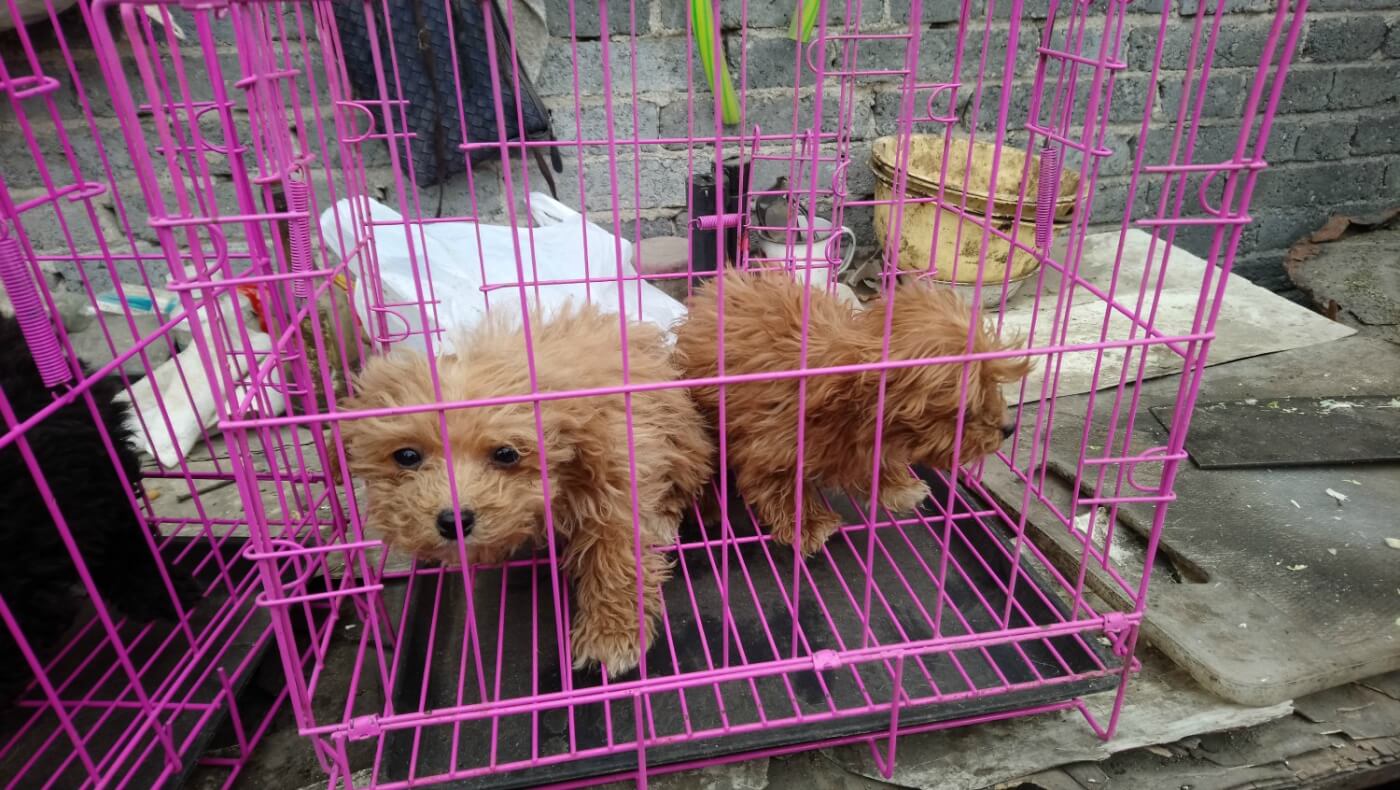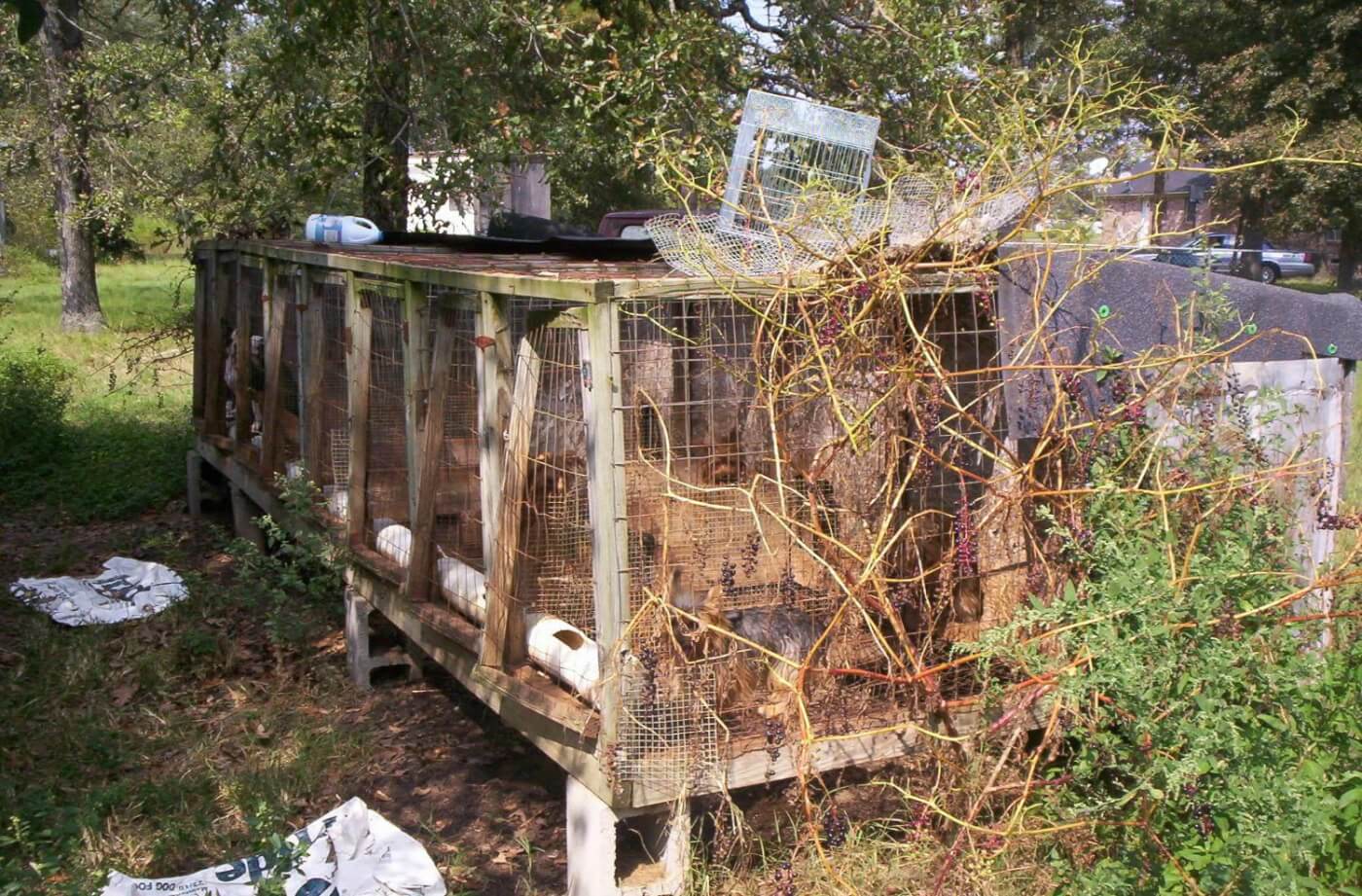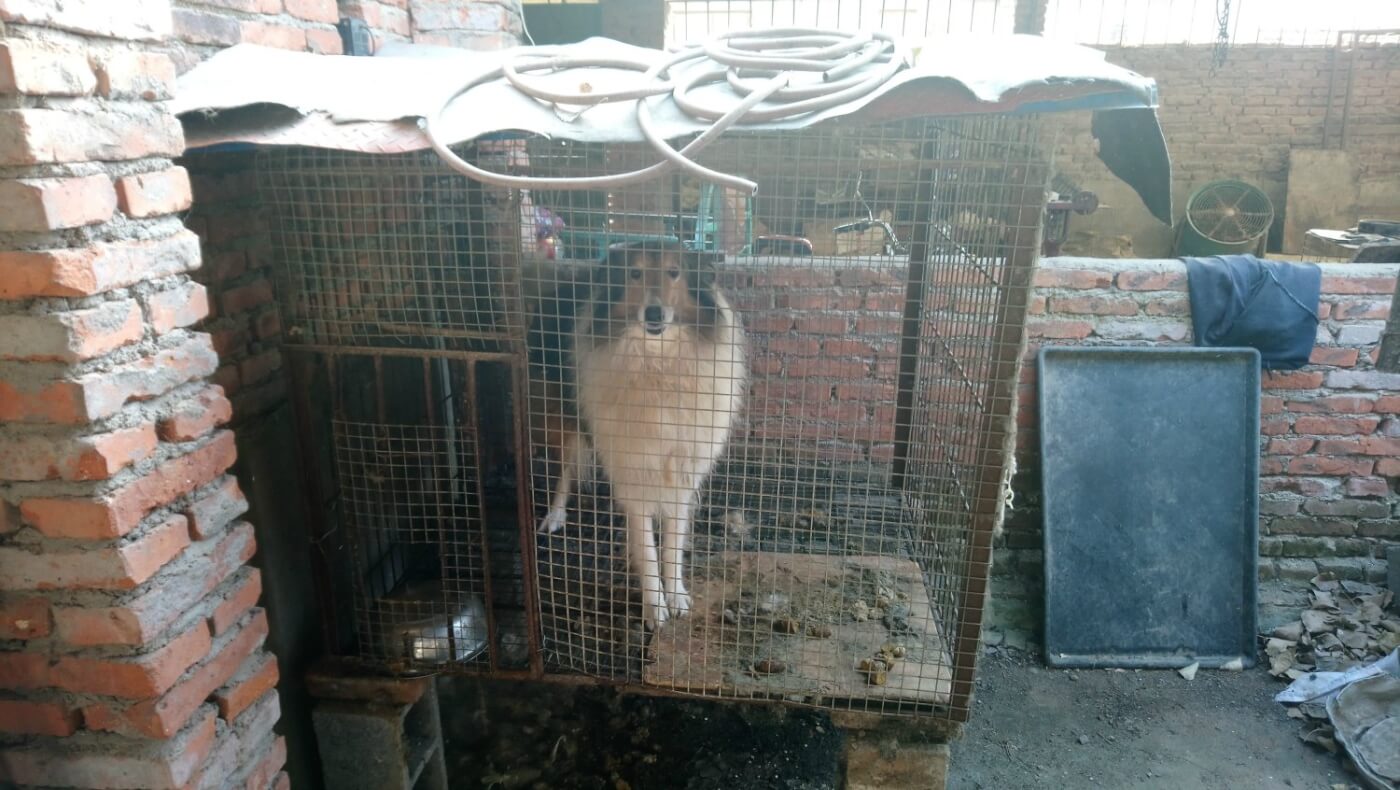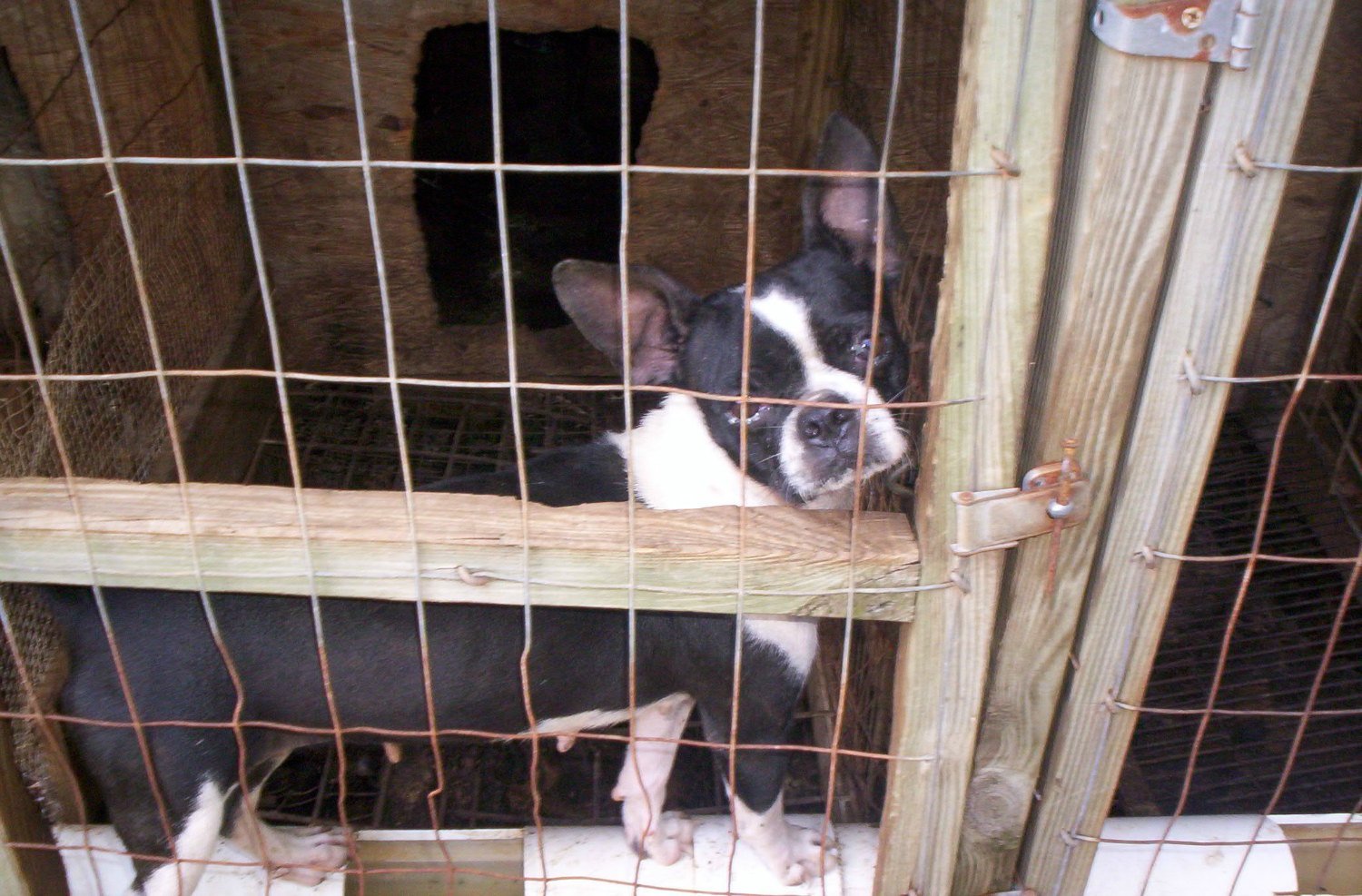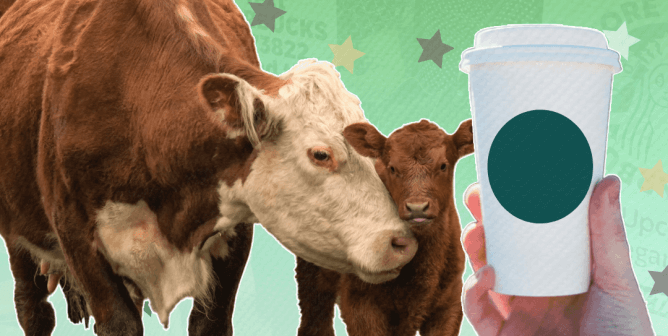Why No One Should Ever Support a Dog Breeder
Why does PETA work so hard to take down dog breeders and puppy mills?
Simple: Breeding animals is killing them. Every time a breeder brings another puppy into the world, a dog waiting in an animal shelter or struggling to survive on the streets loses a chance at finding a loving home.
What’s a dog breeder?
Anyone who forces dogs to reproduce in order to make a profit is a breeder. Some may be small-time “backyard” operations, whereas others are filthy industrial-sized puppy mills. Regardless of size, every breeder is responsible for exacerbating the overpopulation crisis.
Breeding dogs is cruel and irresponsible, especially in the midst of a companion animal overpopulation crisis. Dog breeders treat living individuals as commodities to be genetically manipulated for profit. In this industry, many dogs are kept in hutches, crates, and cages, where they’re in constant isolation, never experiencing the affection of a loving family—something these highly social pack animals desperately need.
How are dog breeders exacerbating the overpopulation crisis?
There’s no excuse for bringing more puppies into the world. On any given day in the U.S., an estimated 70 million homeless dogs and cats are struggling to survive. Of the millions of animals who enter shelters each year, about half must be euthanized for humane reasons or because no suitable homes exist for them. Every time a dog is bred, homeless dogs lose the opportunity to have a good life.
Few, if any, breeders require that the puppies they sell be spayed or neutered. This means that they can go on to have litters of their own, adding to the overpopulation crisis. Breeders don’t see dogs as individuals with personalities and specific needs—they just see dollar signs. When trends arise around particular breeds—such as the craze for huskies fueled by HBO’s Game of Thrones—breeders churn out dogs to make money and accommodate humans’ desire to be part of the most recent fad. But many animals who are purchased on a whim end up neglected or abandoned after their novelty wears off and the people who bought them realize how much work, time, and expense is involved in caring for a living, feeling being.
Some of these dogs will end up in animal shelters, but millions of others will suffer and die alone and uncounted every year—after being hit by cars or attacked by other animals, succumbing to disease or the elements, or enduring other awful fates.
What are puppy mills?
As long as millions of dogs suffer and die every year because no suitable homes exist for them, breeding a dog even once is irresponsible and unethical. The dog-breeding industry includes puppy mills—hellish mass-breeding facilities in which dogs are treated like puppy-producing machines and never given any love or attention or even the opportunity to stretch their legs.
PETA has exposed breeders who keep dogs confined to filthy cages that are barely larger than their own bodies, causing them extreme suffering and distress. Kept in cramped wooden hutches with wire flooring, in small pens, or chained to trees with little to no shelter from the elements, they suffer from illnesses and injuries. Dogs coming from these horrific compounds are often denied needed veterinary care and deprived of any semblance of socialization. Imagine being forced to live amid your own waste, with pus-filled wounds, agonizing ear infections, and deadly parasites—this is the reality of life in a puppy mill.
Puppy-mill breeders force dogs to reproduce repeatedly until their bodies wear out from the strain of being continually pregnant in such impoverished, harsh conditions. At that point, female dogs are worthless to a breeder and are often dumped at an animal shelter, auctioned off, or cruelly killed.
Puppy mills sell the puppies they produce to pet stores or directly to buyers over the internet. Anyone who buys from them keeps these cruel operations in business.
Do puppy mills and breeders really sell sick dogs?
Dogs pay for the breeding industry’s greed with their health, their happiness, and even their lives. “Purebreds” are plagued by physical problems that require costly veterinary treatment, and dogs born in mass-breeding mills commonly suffer from anxiety- and fear-based disorders that often frustrate buyers, leading them to abandon the dogs.
Genetic defects are rampant in any breeding scenario. Breeders’ obsession with “pure” bloodlines leads to inbreeding. This causes “purebred” dogs to suffer from painful and life-threatening disabilities, including crippling hip dysplasia, blindness, deafness, heart defects, skin problems, and epilepsy. Breeders also intentionally breed dogs for distorted physical features—including flattened faces and elongated spines—that cause a lifetime of suffering. Dogs don’t care whether their appearance conforms to a judge’s standards or humans’ whims, but they’re the ones who suffer the consequences of breeders’ greed.
What’s the difference between buying dogs from breeders and adopting from a shelter?
Buying from a breeder worsens the animal overpopulation and homelessness crises and supports a greedy industry that causes animals to suffer for the sake of appearances. Adopting from a shelter gives an animal in need a loving home and is a step toward ending companion animal overpopulation and homelessness.
Socially conscious animal shelters require that dogs have all recommended vaccinations, are spayed or neutered, and have been socialized well enough to become part of a human family. They screen families thoroughly and enforce an adoption fee to ensure that the potential adopter is ready for a lifetime commitment to the animal. And unlike breeders, shelters don’t exacerbate the overpopulation crisis by producing even more animals.
What if I want a specific breed?
If you’re determined to have a dog of a specific breed, many are waiting to be adopted—one in four dogs in animal shelters is a “purebred.” In addition, there are adoption groups seeking homes for dogs of just about every breed. Petfinder.com is a great resource. If everyone were to stop buying puppies from pet stores and breeders, there would be no market for mass-produced puppies, puppy mills and breeders would go out of business, and fewer dogs would suffer.
Why are backyard breeders bad?
Individual dog breeders are just as unethical as any puppy mill but on a smaller scale. Not only is using an animal’s reproductive ability to make a quick buck lazy and wrong—doing so also adds to the overpopulation and homelessness crisis, just as puppy mills do.
And just like puppy mills, breeders often inbreed and breed dogs for grossly distorted physical features, passing along congenital issues that cause suffering in litter after litter and dooming dogs to a lifetime of health problems. French bulldogs, pugs, and other breathing-impaired breeds (BIB), for example, are bred for flattened faces that force them to struggle just to breathe. The activities that make dogs’ lives happy, like going for a walk, chasing a ball, running, and playing, are impossible for many BIB dogs.
Is breeding your own dog a bad idea, too?
It’s irresponsible to bring more dogs into the world when countless dogs are dying every day because there are no homes for them. Animal companions typically also have longer, healthier lives if they’re spayed or neutered.
Does breeding shorten a dog’s life?
Pregnancy and birth in any species come with inherent risks to mothers, including death. Spaying eliminates the stress and discomfort that females endure during heat periods, eliminates the risk of uterine cancer, and greatly reduces the risk of mammary cancer. Neutering makes males far less likely to roam and fight, prevents testicular cancer, and reduces the risk of prostate cancer.
Is PETA against owning pets?
At PETA, we love and respect the animal companions who share our homes. We encourage people who have the time, money, patience, commitment, and love needed to care for an animal for life to adopt one from a shelter—or, better yet, to adopt two compatible animals so that they can provide each other with companionship.
What we are against is breeding more animals, especially since there are nowhere near enough good homes for all the animals who already exist—which results in almost unimaginable suffering. Please read PETA’s full position on “pets” for more information on this issue.
How can I help take down dog breeders and puppy mills?
Never buy animals from puppy mills, breeders, or pet stores. These cruel businesses keep operating only because people continue to give them money. If you’re prepared to care for an animal properly and for a lifetime, adopt from a shelter and be sure to schedule a spay or neuter appointment right away if your new animal companion hasn’t already been sterilized.
And please, inform others on this topic. Speak out against breeders and pet stores, and if you know of anyone who’s thinking of purchasing a dog, share this page with them to help them understand why they should adopt from an animal shelter instead.

